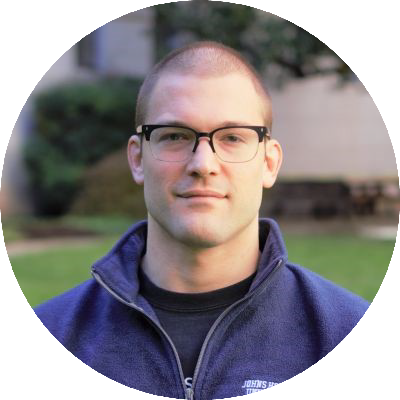
Dylan Sarver
In Dr. G. William Wong’s lab, I uncovered a biological process that can effectively prevent high-fat diet-induced weight gain and progression toward type 2 diabetes. While initially studying the effects trisomy of the 21st chromosome (Down syndrome) has on systemic metabolism and the development of metabolic disease, I serendipitously discovered the presence of an extremely strong futile cycle within the skeletal muscle of one of our mouse models. Quite amazingly, the presence of this particular futile cycle directly promotes continuous energy (ATP) depletion. This, in turn, drives the energy production pathways of the body, which results in massive calorie utilization and energy expenditure. The resultant organism is almost completely resistant to gaining weight and does not develop many of the hallmark signs of type 2 diabetes. This work provides very helpful insight and proof-of-concept to this anti- obesity pathway, which could be harnessed as a treatment for obesity and diabetes.
Questions & Answers
Why did you choose Johns Hopkins for your work?
The Department of Cell and Molecular Physiology was the leading reason I chose Johns Hopkins to pursue my graduate training. The combination of a wealth of intellectual resources and the great people that make up the department won me over. I absolutely made the right choice. Dr. G. William Wong has been nothing but an amazing source of scientific inspiration. Our constant diving into the unknown has fostered my creative and critical thinking skills immensely. It has been a great honor to learn and grow alongside him throughout my time as a Hopkins graduate student.
What does receiving this award mean to you personally and professionally? Do you have any connection with the particular award you received?
The Hans J. Prochaska Award recognizes outstanding research contributions to the biomedical community. I feel extremely thankful and very lucky to have received such a meaningful award. I will continue my path in science with the great enthusiasm, creativity and scientific rigor Dr. Prochaska showed in his.
What contributed to your project’s success?
Some of the key factors driving the success of this research would have to be luck, effort and curiosity. Without any one of these, the project would have been nearly impossible.
What thoughts do you have about Young Investigators’ Day itself, as a celebration of the roles student and fellows play in research at Johns Hopkins?
It’s nice to have a day like this to highlight some of the great work happening at Hopkins. I feel this event only scratches the surface of great things happening on campus.
What has been your best/most memorable experience while at Johns Hopkins?
This is a nearly impossible question to answer because there have been so many. It cannot be narrowed down to a simple technical feat nor a day or month that went my way. I believe the memory that will stick with me the longest is the feeling that accompanies an environment created to foster creativity and discovery. Dr. G. William Wong did an amazing job making sure my passion for science only grew with time. I am extremely grateful for this and will do my best to stimulate the passion and enthusiasm of my future trainees in the same manner.
What are your plans over the next year or so?
In the next year, I will be pursuing a postdoc to expand my scientific training. My goal is to one day have a lab of my own, and this will keep me moving in that direction.
Tell me something interesting about yourself that makes you unique. Do you have any special hobbies, interests or life experiences?
I have a number of hobbies. Some of my favorite include training jujitsu, making music and graphic design. These all help keep my mind healthy and creative.